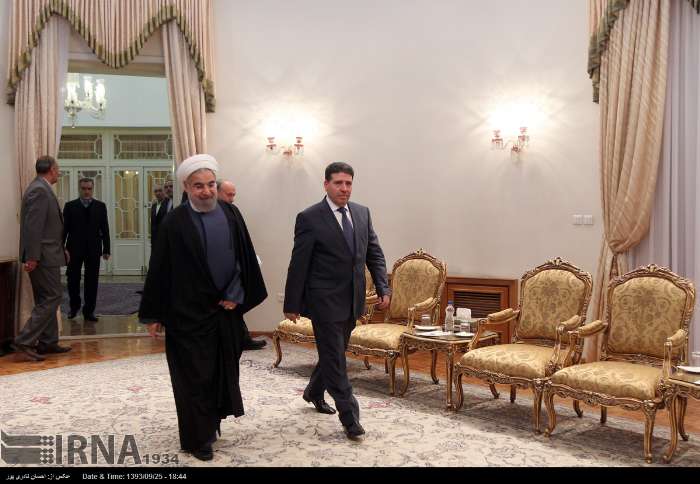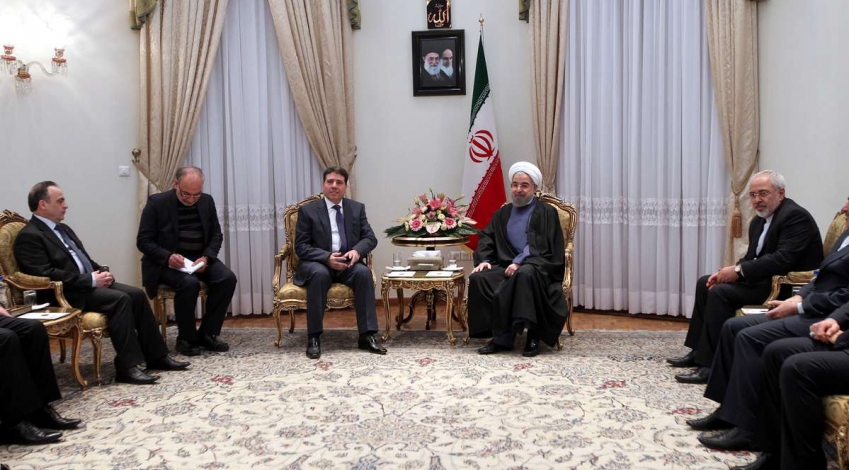 Syrias Prime Minister Wael al-Halqi has begun several days of discussions in Iran, seeking Tehrans continued support for the Syrian economy in the 45-month conflict.
Syrias Prime Minister Wael al-Halqi has begun several days of discussions in Iran, seeking Tehrans continued support for the Syrian economy in the 45-month conflict.Al-Halqi had a photo opportunity with President Rouhani, while the substantive discussions took place with 1st Vice President Eshagh Jahangiri and the Secretary of the National Security Council, Ali Shamkhani
In the official statements, Rouhani stressed that the global conspiracies against Iran will not dissuade it from continuing its support for Syrias government and people.
Away from the cameras, however, the important question is whether Syria will get billions more in assistance from Tehran as it faces economic crisis and shortages of food and fuel.
Iranian State media said al-Halqi thanked the Iranians for their $3.6 billion line of credit, arranged in July 2013, saying that it had provided food and oil derivatives through 2015 as well as spare parts for power plants, hospitals, and factories.
The articles did not comment on al-Halqis request for Iran to renew the line of credit when it is exhausted, merely posting his remark to Rouhani, The Syrian government and people appreciate the Iranian government and people for their support during the four-year cruel war against Syria.
Irans ability to contribute more billions may be hindered by its own economic difficulties. With the failure to reach a comprehensive nuclear agreement, Tehran faces continuing sanctions and their effect on oil exports down more than 40% since 2012 and revenues. The halving of the global oil price, the baseline for the Government budget presented last week, has compounded the immediate problems with deficits, inflation, and falling production.
Yet another complication has arisen this week with the currency crisis in Russia, the other main backer of the Assad regime. The ruble has fallen more than 20% this week, despite Moscows attempt to bolster it with a sharp rise in interest rates.
By EA WorldView
The Iran Project is not responsible for the content of quoted articles.











